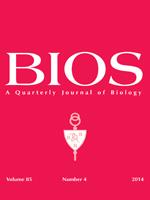Despite its obvious costs, autotomy of a body part is a common and effective behavioral strategy to avoid predation. For several species, this limb loss may impact the ability to escape future predation events. Lizards that lose tails are slower to climb or run, and crickets that autotomize legs can jump less far. Epibenthic brittle stars frequently autotomize arms but the effect of arm loss on their escape speed has not been examined. Using two species, spiny (Ophiocoma echinata) and banded-arm (Ophioderma appressum) brittle stars, we predicted that brittle stars missing an arm would move more slowly than intact individuals. Individual brittle stars, either intact or with one arm cut off, were placed in the center of a sandy, well-lit, subtidal arena and allowed to move under the rocks surrounding the arena. We found a positive relationship between the size of the brittle star and its speed. However, there was no difference between escape speeds of intact brittle stars and ones missing an arm for either species. Our data suggest that autotomy has little impact on speed. Thus, unlike many other species, autotomy of an arm does not appear to negatively impact the ability of brittle stars to escape future predation events.
How to translate text using browser tools
1 December 2014
Effect of arm loss on escape speed of two epibenthic brittle stars
Jonathan M. Price,
Lauren R. Cassel,
Megan J. Gordon,
Richard S. Phillips,
Kathleen A. Reinsel,
James M. Welch
ACCESS THE FULL ARTICLE





